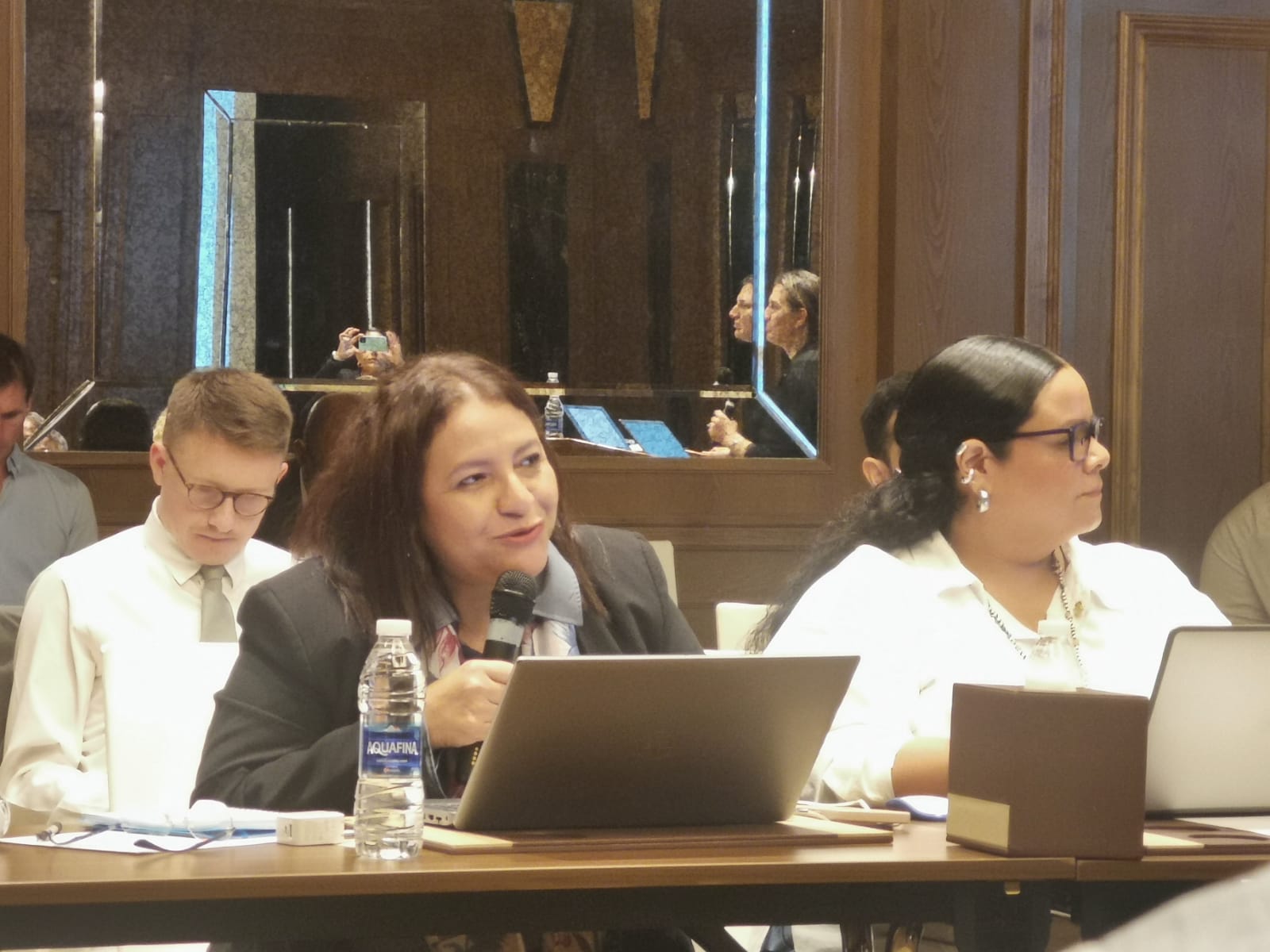The Secretary of Agriculture and Livestock of Honduras, Laura Suazo, had a very active participation in the 28th edition of the COP, the largest climate negotiation forum in the world organized annually by the UN, where she brought the voice and demands of Central America and the Caribbean to facilitate and accelerate access to funds to finance faster adaptation of farmers to the new scenarios caused by climate change.

Dubai, United Arab Emirates, 10 December 2023 (IICA) – The Secretary of Agriculture and Livestock of Honduras, Laura Suazo, had a very active participation in the 28th edition of the COP, the largest climate negotiation forum in the world organized annually by the UN, where she brought the voice and demands of Central America and the Caribbean to facilitate and accelerate access to funds to finance faster adaptation of farmers to the new scenarios caused by climate change.
“The presence of the Ministers of Agriculture at the COP is remarkable, especially when we look at the region of Central America and the Caribbean. Agricultural financing is a highly relevant topic, and several speakers have shared experiences with issues such as agricultural insurance, guarantees, all of which are necessary, especially because the risk in agriculture increases with the negative impact of climate change, as a result of droughts, floods, pests or diseases that thrive with increased temperatures. It has been very encouraging to learn about the progress that all countries are making in these aspects,” said the Honduran official when taking stock of her participation in the COP.
Suazo also highlighted the importance of issues related to knowledge management. “In this aspect, the agroclimatic roundtables are especially important. Several countries, such as Colombia, Guatemala, and Honduras, have made great progress to promote them as mechanisms where scientific climate information is shared, thereby helping producers make decisions. This is accompanied by agroclimatic newsletters in which the recommendations are more specific, highlighting the crops of greatest interest,” she explained.
When discussing how to translate this agroclimatic information into more inclusive financing systems, the Honduran Secretary proposed, in addition to financing, to shift towards commercial sales information with minimum and maximum price ranges for the products, to offer more certainty to producers when taking out a loan, for example, so that once climate issues have been overcome, there are no obstacles to trade.
Suazo praised the role played by the Inter-American Institute for Cooperation on Agriculture (IICA) in convening the ministers of Agriculture of the region and bringing together different stakeholders on issues such as financing, biodiversity, public policies, access to financing, and access to scientific meteorological data, among others. “IICA plays a key facilitating role,” she said.
“I believe the issue of public policies is very important, because in most cases, I have seen that if there is political will, changes can be made, and political will is expressed in different ways. To conclude, last week Honduras approved the State policy for the agri-food sector that we have been developing for the last year, and that we will launch in the coming weeks. This is extremely important, because within our policy, climate change is a cross-cutting issue, but so is financing, trade and knowledge management, a group of elements that must go hand in hand so that we can really make positive steps forward,” she concluded.
More information:
Institutional Communication Division.
comunicacion.institucional@iica.in











